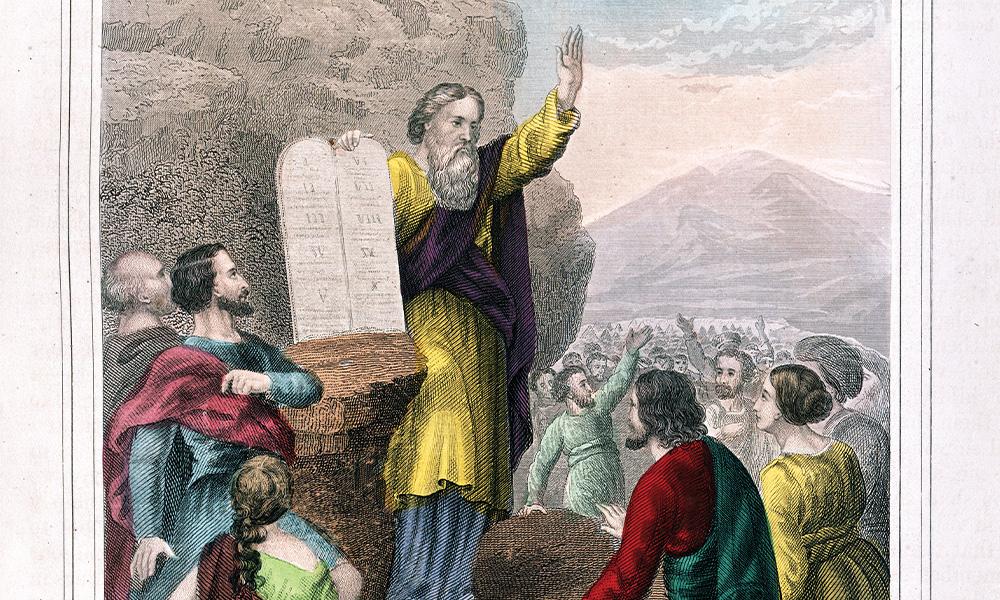
Why Keep the Law
A public junior high school that I pass regularly has posted these words on its marquee recently: “Be honest. Don’t lie.” There are several reasons why that’s good advice. Lying can get you into legal trouble, for example, by giving false testimony in court or cheating on your income tax returns. Lying can ruin your reputation or injure your friendships. Being dishonest can rattle your conscience or make you feel disloyal to the people who originally taught you to be honest.
Those are all legitimate reasons for being honest and avoiding lies. I suppose they might all be included in a lesson on honesty in a public school. Another motivation, though, for being truthful is obeying God. That they don’t teach in public schools, unfortunately.
I say unfortunately, not just because the lesson is incomplete, but because it omits the most significant motivation to keep any law. When people do not have obedience of God as their ultimate reason for obeying laws, even the most mundane civil ones, social order is on shaky ground, even if we don’t realize it — somewhat like a town built on a fault line.
Without God as the final arbiter of our decision-making, we can find ourselves going off the rails, even in small ways. Here’s an example. Not long ago, I passed a car on an interstate highway which was going the exact speed limit. A few miles up the road I pulled into a rest area, as did the other car. When both of us drivers were getting back into our cars, the other driver said to me, “I guess we slow pokes are a nuisance.”
“No,” I said, telling a white lie.
“Well,” came the reply, “as a Christian I believe I should do the right thing.”
Over the years, I have developed the habit of driving over the speed limit a bit. My conscience is clear — until I see a police cruiser. The reality is that I am potentially disobeying not just state law but also divine law, the Fifth Commandment: You shall not kill.
Despite this little public confession, fundamentally I am motivated to keep human laws because I love God and believe that He is Lord of heaven and earth. Of course, I don’t want to go to jail or lose the respect of other people. More importantly, though, I want to honor and obey God. Obeying secular laws is an extension of God’s Fourth Commandment: Honor your father and mother.
As our culture, our Western culture in particular, becomes less faith-oriented, that motivation for keeping the law is fading. Indeed, reference to divine law is virtually absent. If it is mentioned, it is ridiculed. What remains are individual conscience or social norms, whatever social norm happens to be in vogue at the time. Sometimes, personal preference is all that matters. Civil rights, such as abortion and transgenderism that contradict God’s law, are defined. All this leads to confusion and conflict and often a disregard for the law.
The attack on the U.S. Capitol on Jan. 6 was justified by the participants’ belief that some injustice had been perpetrated. Many people, convinced their rights have been violated or that officials are wrong, have defied public health measures put in place because of the pandemic this past year. Abortion clinics have been bombed. People manifest their racial animosity. Street crime escalates. Then, there are plenty of folks who drive a lot faster than I do.
Now, to be clear, we do not live in a theocracy. The modern state, including the United States, is founded on secular principles. You will never see a sign in front of a public school advising, “Go to church on Sunday.” However, that does not prohibit respect for God as a reason to keep the state’s law.
Fear of the Lord is one of the seven gifts of the Holy Spirit. “Fear” does not mean trembling with anxiety. It means an appropriate reverence for the One who has created us and redeemed us and who guides our way to him during our sojourn on earth. Those of us blessed with this gift should use it constantly and, thereby, contribute to the good order of our society.



